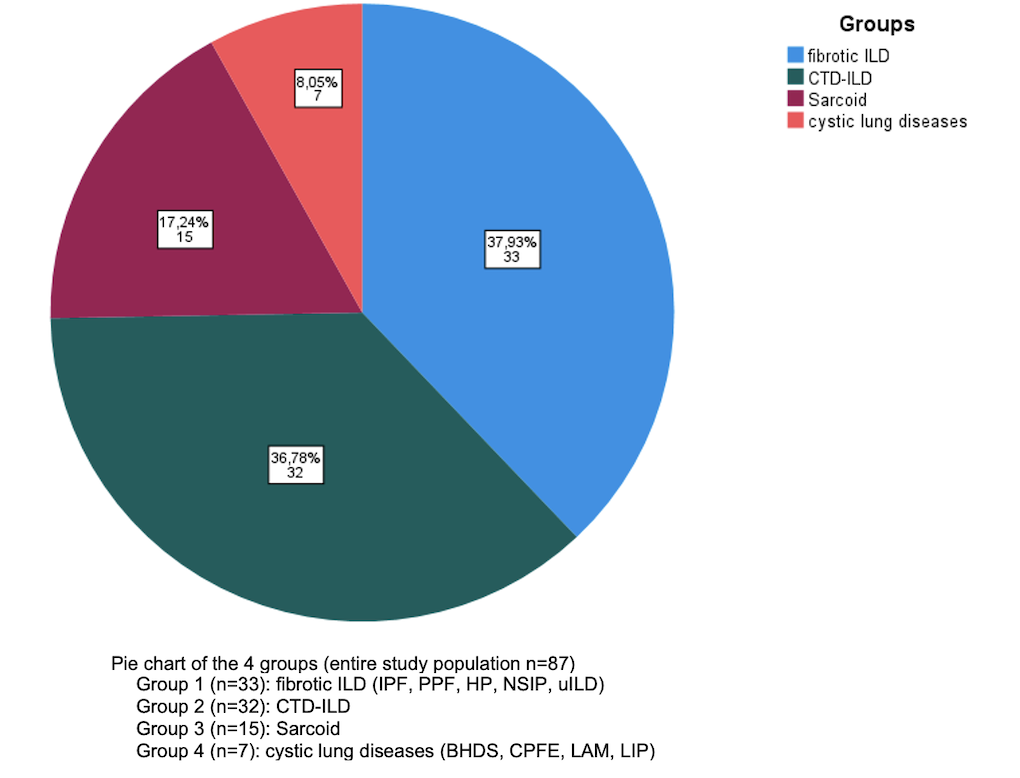Abstract
Background
Scallan et al.(1) proposed the R-Scale as a new questionnaire to assess the health status in patients with IPF.
Objective
We aimed to investigate the utility of a German version of the R-Scale (GR-Scale) by analyzing its relationship to lung function parameters in various ILD at baseline.
Methods
87 patients from four different diagnostic ILD groups (see figure) completed the GR-Scale questionnaire. Pearson correlation coefficients were calculated between GR-Scale scores and routine lung function parameters (forced vital capacity (FVC) and diffusion capacity for carbon monoxide (DLco)).
Results
Within the entire study population, inverse correlations were found between the GR-Scale total score and FVC (r=-0.279 p=0.009) and DLco (r=-0.216 p=0.045), respectively. In group 1 (fibrotic ILD), similar negative trends existed for FVC (r=-0.33 p=0.062) and DLco (r=-0.31 p=0.075). For groups 2 (CTD-ILD) and 3 (Sarcoid) trends towards a negative correlation were found for FVC and DLco (not significant). In group 4 (cystic lung disease) FVC and the GR-Scale total score showed a positive trend (r=0.54 p=0.21).
Conclusion
Our study shows that the GR-Scale and routine lung function parameters show highly variable relationships, but also some consistent trends, thus possibly providing an additional dimension of information about the patients? health for clinical assessment.
(1) Scallan et al. R-scale for pulmonary fibrosis. Eur Respir J 2022; 59:2100917
